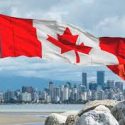Cape Town to Replicate Vancouver’s Taxation Idea
It is unrealistic to believe that foreign investors have little influence on the Canadian housing market and looking at how the real estate market is trending, it is high time that Cape Town uses the 15% tax on foreign investors as Vancouver does.
Home prices in the Cape Town real estate market is going out of control and the reason for this increase is yet to be known as there are fingers pointing to several culprits. The real estate market in Cape Town, particularly the Atlantic Seaboard has seen its housing prices soar skywards and to make matters worse, the earnings of residents is not meeting up to expectation.
As a first time buyer, getting a flat or house is now out of reach and for buyers to upgrade from one bedroom to a two bedroom is getting more difficult by the day.
Buying a house has now become a privilege for those that can afford it but the sad fact is that not all residents are wealthy enough to lavish money on buying a house.
But there are conflicting ideas about the factors behind the rise in home prices. Many real estate agents claim that foreign investors have little influence on home prices but Samuel Seeff disagrees with this claim.
He argue that the claims of agents cannot be trusted as they do not give accurate figures or data as it affects their business as they also have some percentage in any sales they make, hence a decrease in sales or a drop in prices will definitely affect them.
The Vancouver housing market had also gone through the same phase Cape Town is facing but the difference is that home prices in Cape Town are going out of the reach of its middle class residents. Similarly, rental vacancy is also a shared issued between the two provinces which led Vancouver to impose a tax on foreign investors and also on vacant properties.
Therefore, Seeff suggests that the 15% tax imposed on foreign investors in Vancouver should also be practiced in Cape Town. And in the case of Cape Town, the money obtained from the tax could be use to create more affordable houses for residents and also for the homeless. This will also make foreign investors to have a better understanding as they will see the tax is beneficial to residents.
Despite the fact that the tax is imposed to help make housing more affordable for the locals, it will also draw away some attention from foreign investors buying homes in the province.
But the only issue is maintaining the initial intention of the plan as governments and political parties have been known to interfere in projects that bring in finances.





